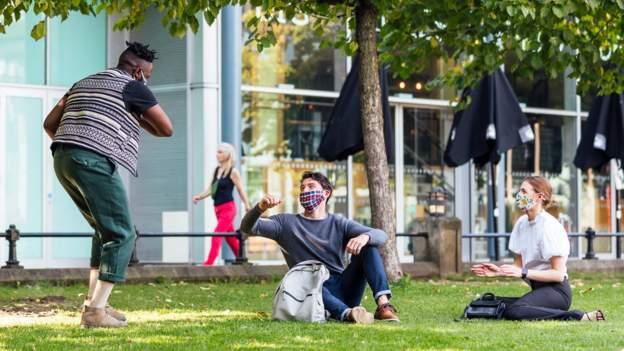Covid: All adults in Wales to be offered first jab by Monday
- Published
- comments
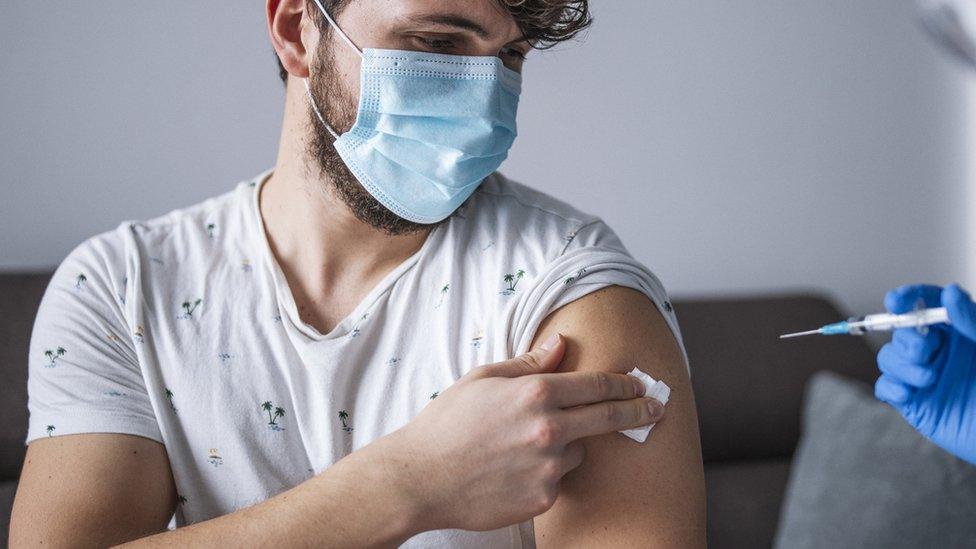
Wales had committed to offering a first dose to all over-18s by the end of July
All adults in Wales will have been offered a first Covid jab by the start of next week - six weeks ahead of schedule, Welsh government has said.
Officials plan to offer second doses to adults by September, while jabs for schoolchildren and boosters for older groups may be offered in the autumn.
First Minister Mark Drakeford promised the second jab programme would be as quick as the first, if supplies allow.
Wales is ahead of other UK nations for giving first Covid vaccine doses.
But it is behind England and Scotland for fully vaccinating people.
Figures show 2.18 million people, or 86% of the adult population, have had a first dose and almost 1.25 million have had a second dose.
Wales' case rate on Monday was 9.4 cases per 100,000, within the range of seven to 10 that it has been in since the start of May.
Along with other UK nations, Wales had committed to offering a first dose to all over-18s by the end of July.
Research has suggested the Pfizer-BioNTech and Oxford-AstraZeneca jabs are highly effective against the variant identified in India after two doses.
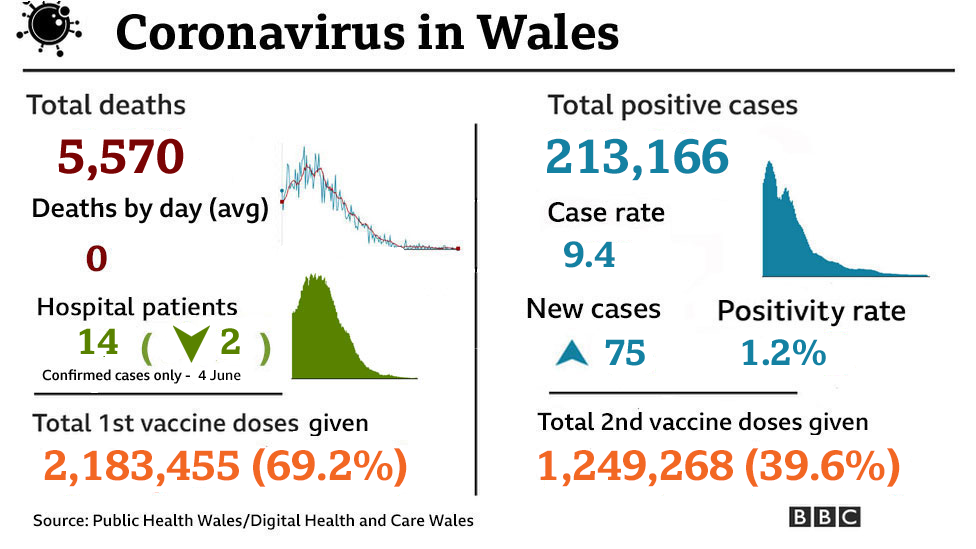

The new Welsh vaccine strategy, published on Monday, said "it is likely that those in priority groups 1-4 and possibly cohorts 1-9 or wider will need a single dose of Covid-19 vaccine as a booster vaccinations".
Groups 1-4 covers those in care homes for older people and those aged 70 or over. Groups 1-9 includes everyone over the age of 50.
Mr Drakeford told a press conference: "We're not certain about how long the vaccine offers protection, and we're seeing new variants as well".
"So for all of those reasons a booster campaign in the autumn may be necessary again," he added.
At the weekend UK regulators approved the Pfizer-BioNTech vaccine for use with 12-15 year olds.
Officials on the UK Joint Committee On Vaccination and Immunisation (JCVI) now have to consider how to move forward - for both booster and school jabs.
Mr Drakeford said the Welsh government would follow its advice, and said work was starting to see how vaccination "for coronavirus to young people in secondary schools" may be offered in the autumn, "if that is what the JCVI recommend".
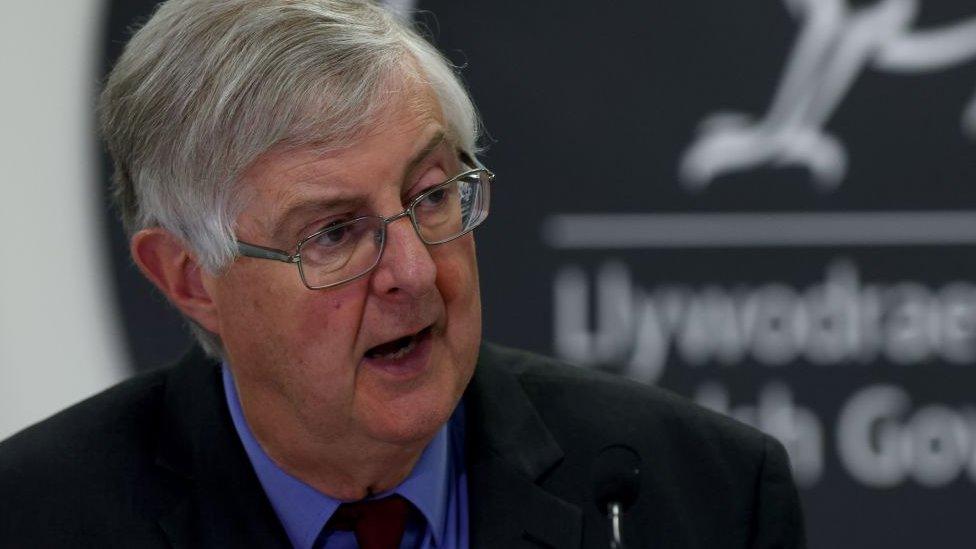
Mark Drakeford said the vaccine uptake between certain groups was "closing"
No Welsh 'freedom day'
Mr Drakeford also said the Welsh government would not lift every restriction on 21 June, even if they were all lifted in England.
And he said there were no plans for a "freedom day" when the final coronavirus restrictions are lifted in Wales.
The UK government has set 21 June as a possible date for lifting the final restrictions in England.
Mr Drakeford said: "We are well into the restoration of freedoms in Wales and we have been restoring freedoms in Wales since February.
"We will continue to do it in exactly that step-by-step way in which, as we become more confident that the public health position in Wales warrants it, then we will restore freedoms without running the risk that everything we have achieved together can go backwards."
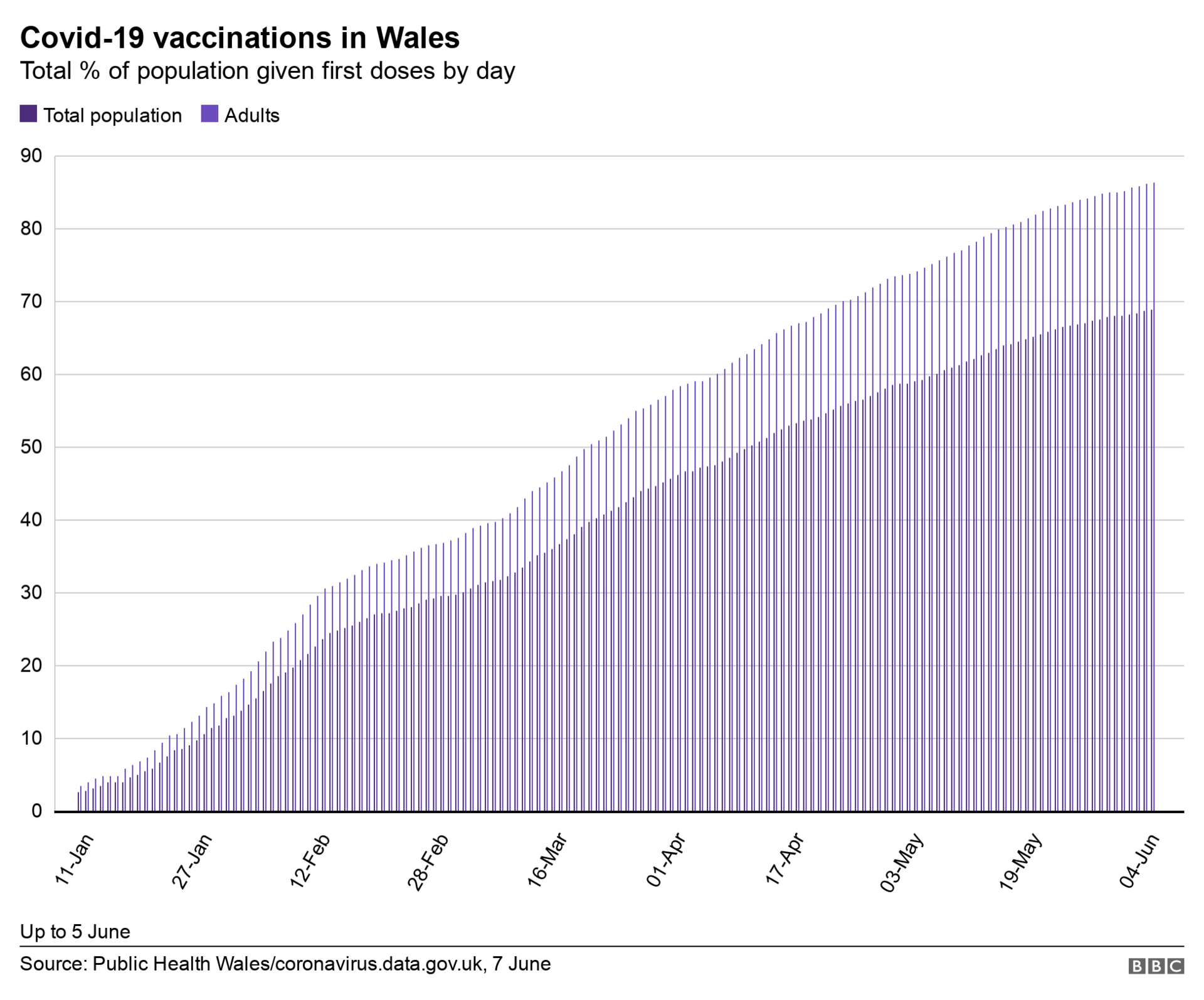

'Breaking the link between illness and hospital'
The first minister said he was "very confident" the vaccination programme was "effectively breaking the link between illness and hospitalisation" where the Kent, or Alpha, variant was concerned.
But more time was needed, he said, to assess whether the vaccine was as effective in reducing hospital admissions for those affected by the Indian, or Delta, variant.
"The numbers of people needing hospitalisation in hotspots elsewhere in the United Kingdom is low," he said.
"But there are some indications that it's not as low as it would have been had that variant not arrived in the United Kingdom, so that's partly why we delayed (more reopening indoors) for two weeks to get better evidence," he said.
"If the evidence shows that two doses of the vaccine is as effective in breaking the link for that new variant, then that will tell us something important for planning ahead".
There have been 97 cases of the Delta variant in Wales, with 54 cases in the Conwy county area.
Plaid Cymru's Rhun ap Iorwerth said officials and the local health board "should strongly consider bringing forward second jabs in the area to stem the spread and offer locals protection".
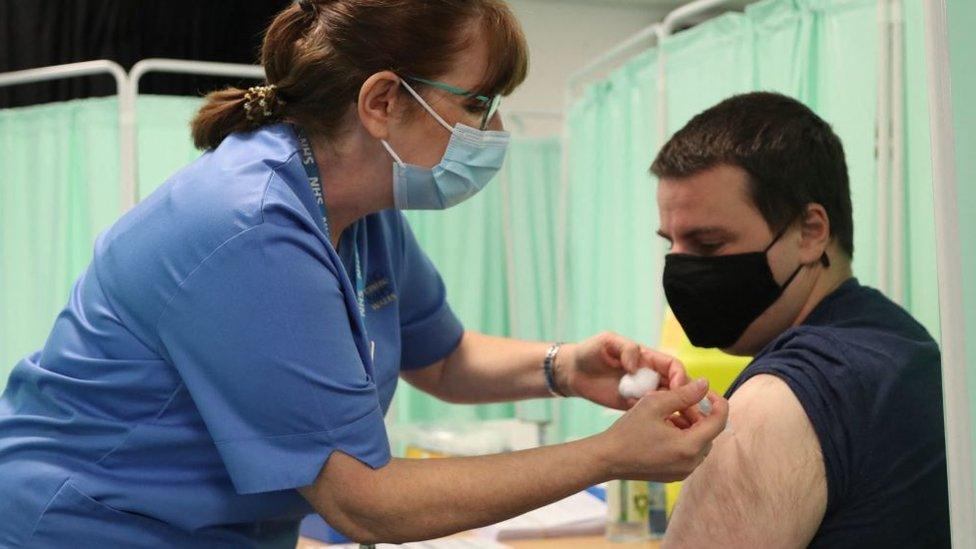
The first minister promised the second jab programme would be as fast as the first
'Increase in non-attendance rates'
It comes as the Welsh government published a strategy that said over the past month there had been an increase in "non-attendance rates" across Wales.
It said this could be "due to transport issues, being unable to reschedule appointments easily, responsibilities such as childcare and out-of-pocket expenses incurred, incorrect patient contact details, access and logistical issues, in addition to lack of confidence and trust in the vaccination".
Groups who may have "particular difficulties" include homeless people, those from black, Asian and minority ethnic (BAME) groups, people with disabilities, asylum seekers and refugees, and single parents, the strategy said.
However Mr Drakeford said the vaccine uptake between certain groups was "closing".
The Welsh Conservatives Senedd leader Andrew RT Davies said: "We must remain vigilant as the clusters of the Indian variant across Wales remain a concern, but if the data particularly in relation to hospitalisation rates indicate we can move forward, then we should continue to ease restrictions in a safe and sensible manner."
- Published28 May 2021

- Published6 June 2021
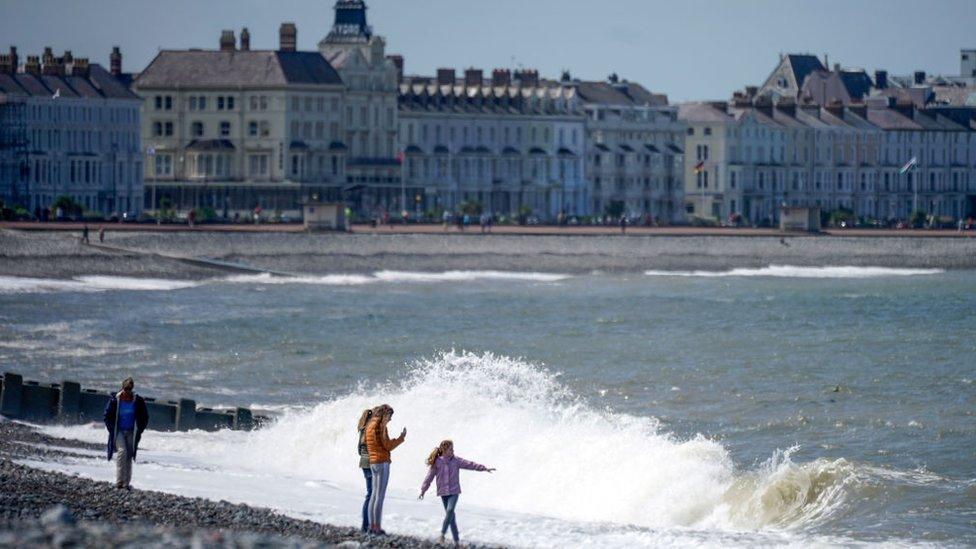
- Published4 June 2021
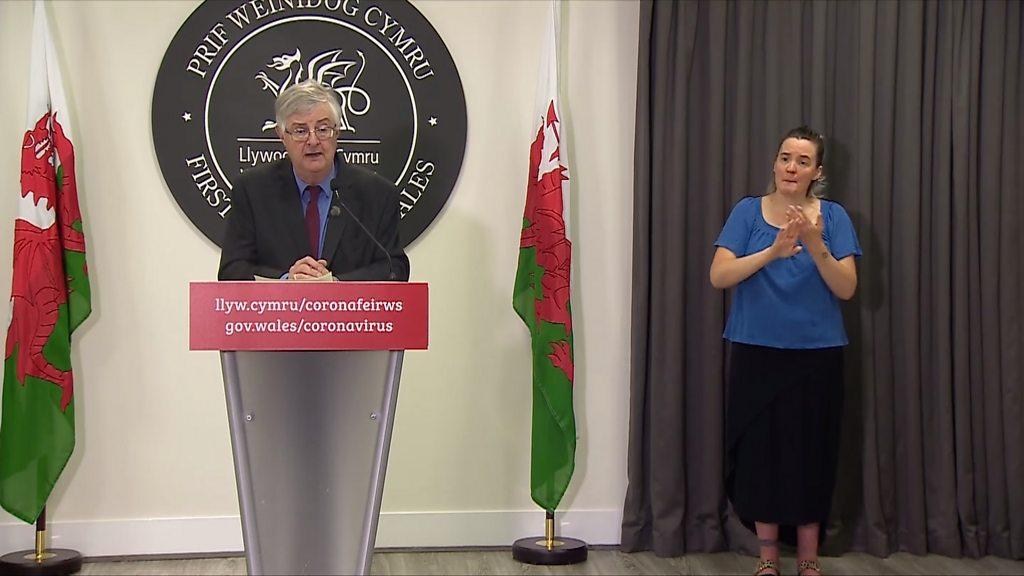
- Published4 June 2021
